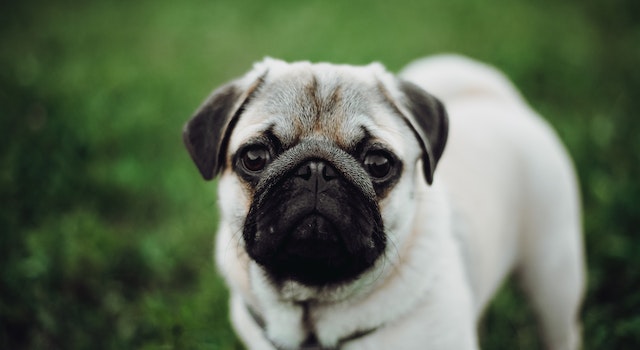Do Pugs Bark A Lot And Bite?
Finding the proper match will result in a dog that brings joy and brightens your life. Within each breed, each dog has a distinct personality and temperament.
Do pugs bite? All dogs bite and bark, but they do so for different reasons, and some bites hurt more than others. Together, let’s find out more!
Do Pugs Bite?
Although pugs are known to be companion dogs who are very playful with kids and other animals, they can bite to defend themselves, as a result of teething, due to inadequate socialization, or even just out of excitement.
The most typical form of bite you’ll encounter in pugs is an overexcited bite, which can occasionally injure but is not usually deliberate.
Due to aggression, which is present in most dogs, not only pugs, but they can also lightly nip or bite.
Why Do Pugs Bite So Much?
Here are some of the most likely causes of an unwarranted or accidental pug bite:
1. Poor Socialization
Many pug behavior issues, including those that may later result in unnecessary biting, have their roots in poor socialization.
Due to training and socialization, a well-socialized pug learns that biting is not acceptable.
Pugs typically bite out of fear or self-defense due to their inadequate socialization.
You must learn to expose and socialize your pug from the puppy stages to prevent any type of pug bites brought on by inadequate socialization.
2. Frustration Or Depression
It hurts when a pug bites, and it can be stressful for the owner to deal with a frustrated pug.
Pugs may become frustrated and depressed for a variety of reasons, including:
- Hunger
- Changing of meal time.
- Emotional stress.
- Too many commands or signs.
- Injury
- Abuse from the owner.
- Leaving your pug alone unattended for long.
- Changes in your daily routine.
- Being ignored by loved ones, etc.
All of these activities have the potential to make a pug aggressive, which may eventually lead to unnecessary biting behavior.
3. Repeat Of Traumatic Event
A pug will undoubtedly become violent if they have a traumatic experience, whether it was with a previous owner or in a shelter home.
Repeating a stressful incident repeatedly or just once can lead to unwarranted violent responses, such as the pug biting back in response.
By starving him, you’re probably punishing your pug without realizing it.
Another abuse form is hitting or hurling objects at your pug while screaming at him.
Your pug will get aggressive and out of balance due to all of this, which will cause unnecessary biting.
Do Pugs Bark?
The truth is that they occasionally do bark, but not often. They are often very quiet dogs, and their bark occasionally resembles a yodel (Mindy had a dove sound). However, they also produce tiny ” yips when they become overexcited.”
The wonderful news is that, with practice and patience, you can teach a Pug new habits that you find acceptable.
Why Do Dogs Bark?
All dogs communicate by making sounds like barking, whining, snarling, and howling. A dog may bark for a variety of reasons, such as:
- Intruders or strangers
- A warning sign of danger
- Curiosity
- Disciplinary issues
- Wanting to play
None of these causes typically lead to bothersome or excessive barking. Instead, because there is a clear cause, the barking episode is typically brief.
Most of the time, dogs stop barking once you pay them attention or acknowledge them. Therefore, concerns or training are only necessary if the barking persists and becomes a problem.
Why do Pugs Bark?
Dogs use barking as a means of communication, as was previously established. They will bark to express their demands, needs, or desires, much like you and I will speak when we have something to say.
Attention seeking – Pugs are attention-seekers; if you neglect them, they will let you know.
Boredom – They must exercise for at least 30 minutes daily to avoid boredom. They can be trying to inform you that they want to play more. These playpens are ideal if you don’t have time to walk Fido.
Happy/Excited –When happy or excited, some pugs bark, while others will yip in a very adorable way. Even if you’ve only been gone for an hour, pugs might become too eager when their owners return home.
Protective/Territorial – Pugs can bark when someone enters your space if they haven’t been properly socialized. Pugs are incredibly devoted to their owners and live solely to make you happy.
Are Pugs Aggressive?
Pugs can be extremely loving and affectionate, but they might develop aggressive tendencies if they aren’t properly socialized. Pugs frequently exhibit aggression by barking, lunging, nipping, or growling.
Through this activity, pugs may be attempting to establish authority in a location they perceive as their domain.
Aggression in Pugs usually comes from a fear response. Due to their innate anxiety and fear, Pugs will respond negatively when they come into touch with these people, animals, or sounds if they have not been properly socialized with other dogs, people, children, and noises.
A trigger is a special circumstance that brings out a particular behavior in a Pug. Pugs may also only display aggression in that setting. Depending on the breed, unique personality, and socialization as a puppy, triggers differ greatly amongst dogs. In an effort to express their sadness about being left alone, pugs may also act aggressively.
FAQ’s
Do Black Pugs Bark?
They can bark just as much and as loudly as fawns, indeed. In fact, don’t be startled to hear your pug bark, no matter what color it is.
Do Pugs Bite You?
They are not typically associated with being “biters” or having a nasty temperament as a breed. Since they can’t effectively bite due to the form of their mouths, they are mostly harmless. However, there may be some exceptions, as usual; thus, caution is advised at all times.
Do pugs get along with kids?
Pugs are wonderful companions for kids since they are playful and versatile. In addition, due to their small size, these spirited and hardy little dogs make excellent family pets and are a suitable option for households with smaller children.
Which dog bites the least?
According to recent research, Labrador Retrievers, Cavalier King Charles Spaniels, and Newfoundlands are among the safest dog breeds with the lowest bite probabilities. While all dogs have the potential to bite, these breeds are renowned for their very patient dispositions when given the proper care.
Are pugs aggressive?
The final truth is that while pugs are not inherently aggressive canines, any dog may exhibit aggressive behaviour in certain situations. It’s time to take action if your pug exhibits aggressive behaviours like nipping, biting, lunging, growling, baring teeth, and chasing.



















